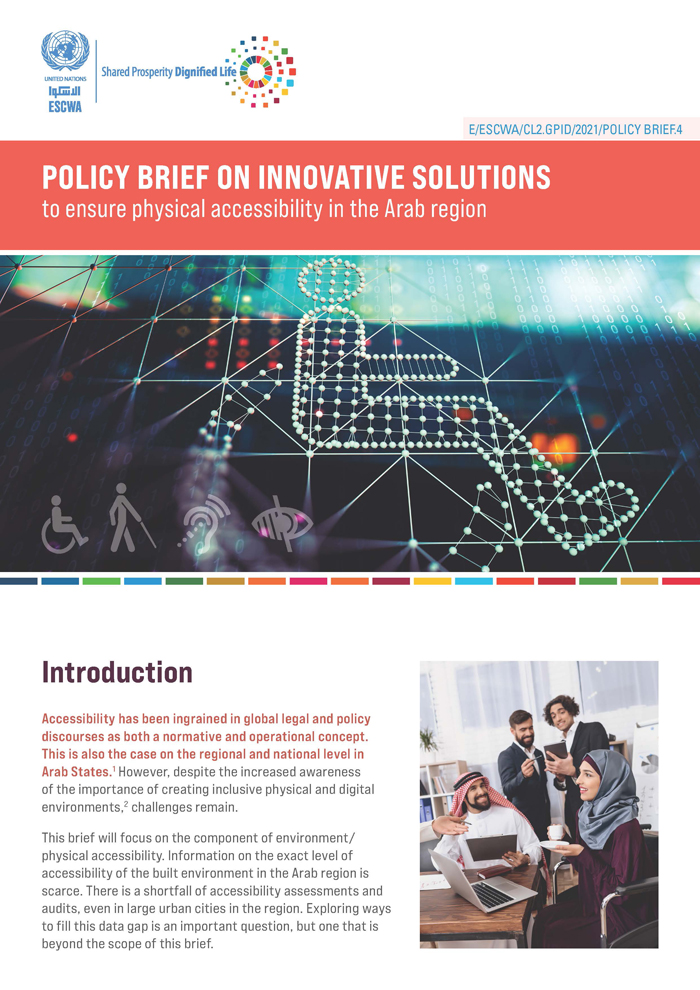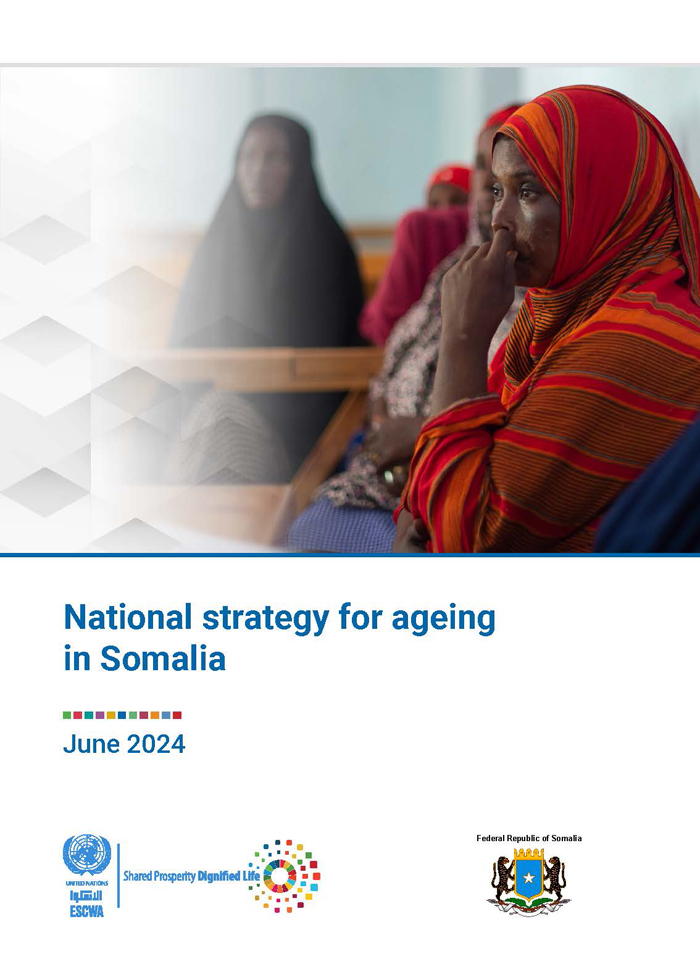
ESCWA Publication: E/ESCWA/CL2.GPID/2021/POLICY BRIEF.4
Country: Arab region, Hashemite Kingdom of Jordan, Kingdom of Morocco, State of Qatar, United Arab Emirates
Publication Type: Policy briefs
Cluster: Gender Justice, Population and Inclusive Development
Focus Area: Inclusive development
Initiatives: Realizing the rights of persons with disabilities
SDGs: Agenda 2030
Keywords: Disability, Social development, Transport, Social development, Building standards, Construction, Innovations, Persons with disabilities, Physical infrastructure
Policy brief on innovative solutions to ensure physical accessibility in the Arab region
April 2022
Accessibility, as both a normative and operational concept, has been ingrained in global legal and policy discourses. This is also the case on a regional and national level in Arab states. However, despite the increased awareness of the importance of creating inclusive physical and digital environments, challenges remain.
This brief will focus on the component of environment/physical accessibility. Data on the exact level of accessibility of the built environment in the Arab region is scarce. There is a gap in conducting accessibility assessments and audits, even in large urban cities in the region. Exploring ways to fill this data gap is an important question but beyond the scope of this brief. Why has it been a challenge to translate commitments to accessibility on the ground? Is ensuring accessibility always costly? What are some examples of innovative solutions to accessibility in the region? And how can these good practices be mainstreamed? This brief aims to shed light on these questions, offer some good practices and provide recommendations to policymakers to help make the Arab region more inclusive of everyone, especially persons with disabilities.
Related content
Inclusive development
,
Accessibility, as both a normative and operational concept, has been ingrained in global legal and policy discourses. This is also the case on a regional and national level in Arab states. However, despite the increased awareness of the importance of creating inclusive physical and digital environments, challenges remain.
This brief will focus on the component of environment/physical accessibility. Data on the exact level of accessibility of the built environment in the Arab region is scarce. There is a gap in conducting accessibility assessments and audits, even in large urban cities in the region. Exploring ways to fill this data gap is an important question but beyond the scope of this brief. Why has it been a challenge to translate commitments to accessibility on the ground? Is ensuring accessibility always costly? What are some examples of innovative solutions to accessibility in the region? And how can these good practices be mainstreamed? This brief aims to shed light on these questions, offer some good practices and provide recommendations to policymakers to help make the Arab region more inclusive of everyone, especially persons with disabilities.



